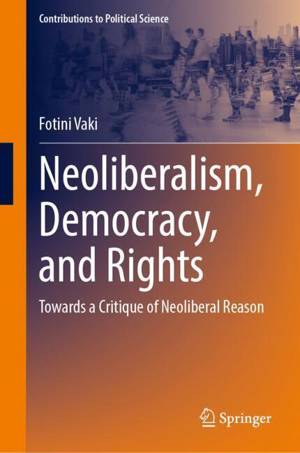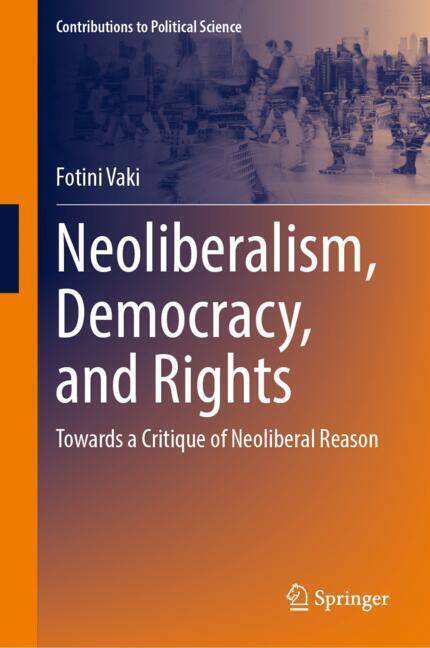
- Retrait gratuit dans votre magasin Club
- 7.000.000 titres dans notre catalogue
- Payer en toute sécurité
- Toujours un magasin près de chez vous
- Retrait gratuit dans votre magasin Club
- 7.000.000 titres dans notre catalogue
- Payer en toute sécurité
- Toujours un magasin près de chez vous
Description
The book sheds light on the forms of neoliberalism's political rationality by highlighting the theoretical foundations upon which they are built. It relies on Foucault's account of neoliberal reason in terms of a governmental rationality encompassing all aspects of human life, as well as Critical Theory's methodology.
The book discloses the tensions and antinomies between the concepts neoliberalism resorts to for its own moral and theoretical justification and the historical forms of its realization. By combining the rigor of the normative principles of political philosophy with contemporary historical material, the book shows how neoliberalism realizes itself by negating liberty in its own name, undermining democracy, and annulling rights via their transformation into the morals of the new global market. The core argument permeating the book is that crises are the very condition of neoliberalism's existence. It states that, paradoxically enough, neoliberalism is facing the crises it itself produces by touching off new ones.
The book will appeal to students, scholars, and researchers of political science in general, and political theory, political philosophy, and political history in particular, interested in a better understanding of neoliberalism, democracy, and rights.
Spécifications
Parties prenantes
- Auteur(s) :
- Editeur:
Contenu
- Nombre de pages :
- 126
- Langue:
- Anglais
- Collection :
Caractéristiques
- EAN:
- 9783031614668
- Date de parution :
- 25-08-24
- Format:
- Livre relié
- Format numérique:
- Genaaid
- Dimensions :
- 163 mm x 237 mm
- Poids :
- 344 g







